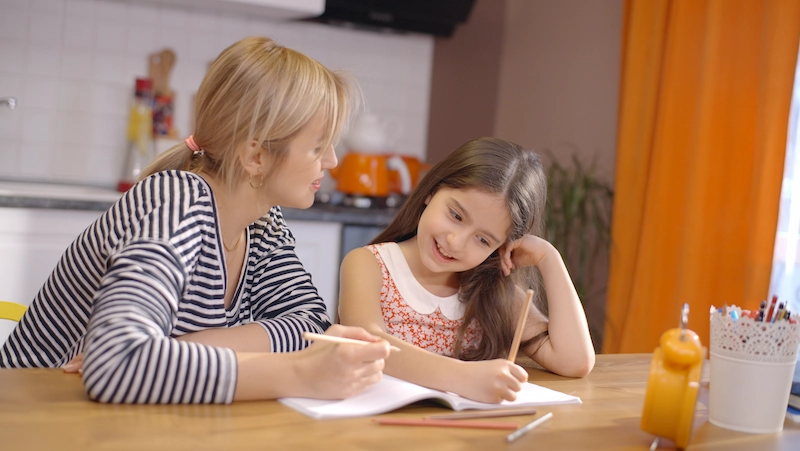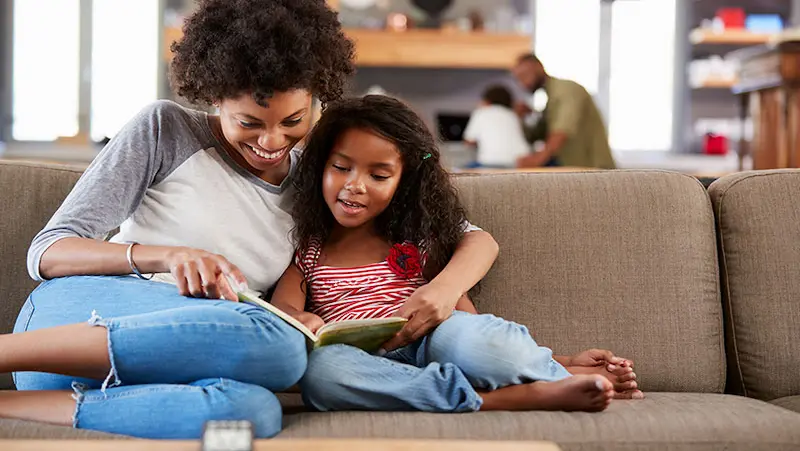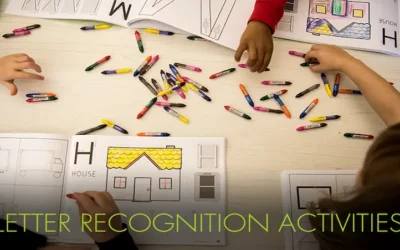Empowering your kids with positive affirmations is a wonderful way to boost their confidence and happiness. Positive affirmations are simple, yet powerful statements that encourage a positive mindset and reinforce self-belief. By introducing these affirmations into your children’s lives, you can help them develop a strong sense of self-worth and resilience, laying a foundation for their future success and happiness.
Table of contents
Introduction
Positive affirmations are positive statements that you repeat to yourself in order to change your thinking and behavior. They can be used to improve your self-esteem, boost your confidence, and achieve your goals.
For children, positive affirmations can be a powerful tool for building self-confidence and resilience. When children hear positive messages about themselves, they are more likely to believe them and to act accordingly. This can lead to a number of benefits, including:
- Improved self-esteem. Children who believe in themselves are more likely to try new things, take risks, and persevere in the face of challenges.
- Increased confidence. Children who feel confident are more likely to speak up in class, make new friends, and take on leadership roles.
- Reduced stress and anxiety. Children who feel good about themselves are less likely to experience stress and anxiety.
- Improved academic performance. Children who believe in themselves and their abilities are more likely to succeed in school.
- Stronger relationships. Children who feel good about themselves are more likely to have positive relationships with their peers, family, and teachers.
Benefits of Positive Affirmations for Kids

There are many benefits to using positive affirmations for kids. Some of the most important benefits include:
- Increased self-esteem: Positive affirmations can help kids to develop a more positive view of themselves. This can lead to increased self-confidence and a greater sense of self-worth.
- Improved confidence: Positive affirmations can help kids to feel more confident in their abilities. This can lead to better performance in school, sports, and other activities.
- Increased happiness: Positive affirmations can help kids to feel happier and more content with their lives. This can lead to improved mental and emotional health.
Here are some examples of positive affirmations that you can use with kids:
- I am capable of anything I set my mind to.
- I am smart and I learn quickly.
- I am kind and I care about others.
- I am brave and I face my fears.
- I am loved and supported.
It is important to choose affirmations that are specific, positive, and believable for the child. You can also help the child to come up with their own affirmations.
How to Introduce Positive Affirmations to Your Child

Here are some tips on how to introduce positive affirmations to your child:
- Create a safe and supportive environment. It’s important to create a safe and supportive environment where your child feels comfortable expressing themselves. This means being patient, understanding, and non-judgmental. It also means avoiding negative self-talk in front of your child.
- Teach the concept of affirmations in a child-friendly manner. Explain to your child that affirmations are positive statements that can help them feel good about themselves. Help them understand that they can create their own affirmations, and that there is no right or wrong way to do it.
- Provide examples. Once your child understands the concept of affirmations, provide them with some examples. You can write down some affirmations for them, or you can have them come up with their own. Some examples of positive affirmations include:
- I am smart.
- I am capable.
- I am loved.
- I am worthy.
- I can do anything I set my mind to.
- Encourage self-expression. Encourage your child to express themselves through their affirmations. They can write them down, draw them, or even sing them. The more creative they are, the more likely they are to remember and believe their affirmations.
It’s important to remember that affirmations take time to work. Don’t expect your child to see results overnight. Just keep practicing, and be patient. With time and effort, affirmations can help your child build a strong sense of self-worth and confidence.
Here are some additional tips for using positive affirmations with children:
- Use affirmations throughout the day. The more your child hears and says their affirmations, the more they will believe them.
- Make affirmations fun. You can play games, sing songs, or draw pictures to help your child remember their affirmations.
- Be consistent. The more consistent you are with using affirmations, the more effective they will be.
- Be positive. Affirmations should be positive and uplifting. Avoid using negative words or phrases.
Positive affirmations can be a powerful tool for helping children build self-esteem, confidence, and resilience. By following these tips, you can help your child create a positive mindset and achieve their goals. learn kids coding language.
Top Positive Affirmations for Kids

Here are a selection of age-appropriate affirmations with explanations for kids:
- I am loved and accepted just the way I am. This affirmation is important for kids of all ages, but it is especially important for younger kids who are still developing their self-esteem. It is important for kids to know that they are loved and accepted for who they are, regardless of their appearance, abilities, or personality.
- I am capable and smart. This affirmation can help kids feel confident in their abilities and encourage them to try new things. It is important for kids to know that they are capable of learning and achieving things, even if they don’t always succeed the first time.
- I am brave and strong. This affirmation can help kids overcome their fears and challenges. It is important for kids to know that they are brave and strong, and that they can handle whatever life throws their way.
- I am kind and helpful. This affirmation can help kids develop empathy and compassion for others. It is important for kids to know that they can make a difference in the world by being kind and helpful to others.
- I am creative and imaginative. This affirmation can help kids tap into their creativity and imagination. It is important for kids to know that they are unique and special, and that they have the power to create anything they can imagine.
These are just a few examples of age-appropriate affirmations for kids. There are many other affirmations that can be helpful for kids, depending on their individual needs and challenges. The important thing is to find affirmations that resonate with your child and that you can say to them regularly.
Here are some tips for using affirmations with kids:
- Keep it simple. Affirmations should be short and easy for kids to understand.
- Be positive. Affirmations should be positive and uplifting.
- Be consistent. The more you say affirmations to your child, the more likely they are to believe them.
- Make it fun. You can make saying affirmations fun by using games, songs, or other activities.
Affirmations can be a powerful tool for helping kids develop positive self-esteem and confidence. By using affirmations regularly, you can help your child build a strong foundation for success in life.
In addition to using affirmations, there are other things you can do to help your child develop a positive self-esteem. These include:
- Praise your child often. When your child does something good, be sure to praise them. Let them know how proud you are of them.
- Set realistic expectations. Don’t expect your child to be perfect. Everyone makes mistakes. Help your child learn from their mistakes and move on.
- Teach your child about diversity. Help your child understand that everyone is different, and that everyone is special in their own way.
- Encourage your child to try new things. Don’t be afraid to let your child fail. Failure is a natural part of learning. Help your child learn from their failures and keep trying.
By doing these things, you can help your child develop a positive self-esteem and confidence. This will help them succeed in school, in relationships, and in life.
Fun Activities to Reinforce Positive Affirmations

Here are some fun activities to reinforce positive affirmations for kids:
- Affirmation Bingo: This is a fun game that can be played with a group of kids. Make a bingo card with positive affirmations written on it. Then, have the kids take turns saying affirmations aloud. If a kid says an affirmation that is on their bingo card, they get to mark it off. The first kid to get five in a row wins!
- Affirmation Scavenger Hunt: This is a fun activity that gets kids moving around. Hide positive affirmations around the house or yard. Then, have the kids go on a scavenger hunt to find them. When they find an affirmation, they can read it aloud and then put it in a designated spot.
- Affirmation Bracelets: This is a fun and creative activity that kids can do to make a reminder of their positive affirmations. Cut out strips of paper and write positive affirmations on them. Then, thread the strips of paper onto a piece of string or elastic to make a bracelet. Kids can wear their bracelets as a reminder of their positive affirmations throughout the day.
- Affirmation Jar: This is a fun and interactive activity that kids can do to collect positive affirmations. Get a jar and fill it with slips of paper with positive affirmations written on them. Then, have the kids take turns picking a slip of paper out of the jar and reading it aloud. Kids can also add their own positive affirmations to the jar.
- Affirmation Mural: This is a fun and creative activity that kids can do to create a visual reminder of their positive affirmations. Get some poster board or butcher paper and have the kids draw a picture or collage that represents their positive affirmations. Kids can also write their positive affirmations on the poster board or butcher paper.
These are just a few ideas for fun activities that can help kids reinforce positive affirmations. By making affirmations enjoyable, kids are more likely to remember them and incorporate them into their daily lives.
Integrating Positive Affirmations into Daily Life

Here are some practical tips on how to integrate positive affirmations into your daily life:
- Choose affirmations that are meaningful to you. The most effective affirmations are those that resonate with your personal values and goals. Take some time to think about what you want to achieve in life, and then write down affirmations that support those goals.
- Repeat your affirmations regularly. The more you repeat your affirmations, the more likely you are to believe them. Try to repeat your affirmations at least once a day, but more often is even better.
- Make your affirmations specific and believable. Vague affirmations, such as “I am confident,” are not as effective as specific affirmations, such as “I am confident in my ability to give a presentation.” And if you don’t believe your affirmations, they won’t be effective. So be sure to choose affirmations that you can realistically believe.
- Be patient. It takes time to see results from positive affirmations. Don’t expect to change your mindset overnight. Just keep repeating your affirmations and be patient with yourself.
Here are some examples of positive affirmations that you can use:
- I am worthy of love and respect.
- I am capable of achieving my goals.
- I am confident in my abilities.
- I am grateful for all the good in my life.
- I am surrounded by loving and supportive people.
You can also incorporate positive affirmations into your routines and interactions. For example, you can:
- Write your affirmations on sticky notes and place them around your home or office.
- Say your affirmations to yourself in the mirror each morning.
- Include your affirmations in your daily gratitude practice.
- Share your affirmations with friends and family.
- Use your affirmations as mantras when you’re feeling stressed or anxious.
Conclusion
In conclusion, empowering our kids with positive affirmations is a powerful tool and coding for kids that can significantly boost their confidence and happiness. By nurturing their self-belief and encouraging positive self-talk, we equip them with the resilience to overcome challenges and the motivation to reach their full potential. Positive affirmations lay the foundation for a healthy mindset, helping children develop a strong sense of self-worth and a positive outlook on life.
As parents, educators, and mentors, it is our responsibility to create a supportive environment where positive affirmations become a regular part of their daily lives. By doing so, we pave the way for our children to grow into confident, happy individuals who embrace their unique qualities and thrive in every aspect of their lives. Let us empower our kids with the transformative power of positive affirmations and watch them soar to new heights.
Elevate your child’s learning journey with BrightChamps, where innovation knows no bounds. Our comprehensive edutech platform offers a rich blend of robotic adventures, financial wisdom, and coding mastery for kids.
Frequently Asked Questions
Positive affirmations for kids are encouraging statements that promote self-confidence, resilience, and positive thinking. Examples include “I am smart,” “I can do anything I set my mind to,” and “I am loved.”
Positive affirmations benefit children by fostering a positive mindset, boosting self-esteem, developing a growth mindset, enhancing resilience, promoting optimism, improving focus, and cultivating a strong sense of self-worth.
Introduce positive affirmations to your child by using them consistently and in a supportive environment. Incorporate them into daily routines, create affirmation cards or posters, say them aloud together, and encourage your child to repeat affirmations silently or write them down.
Specific affirmations that work well for kids depend on their individual needs and interests. Tailor affirmations to focus on areas like confidence, resilience, kindness, creativity, problem-solving, and personal growth. For example, “I am brave and can overcome challenges.”
Yes, positive affirmations can help improve your child’s self-esteem. By reinforcing positive beliefs about themselves, affirmations challenge negative self-talk, build confidence, and create a foundation for a healthy self-image. Consistent use of affirmations can have a positive impact on their overall self-esteem and well-being.


 We are an army of educators and passionate learners from BrightChamps family, committed to providing free learning resources to kids, parents & students.
We are an army of educators and passionate learners from BrightChamps family, committed to providing free learning resources to kids, parents & students.
























